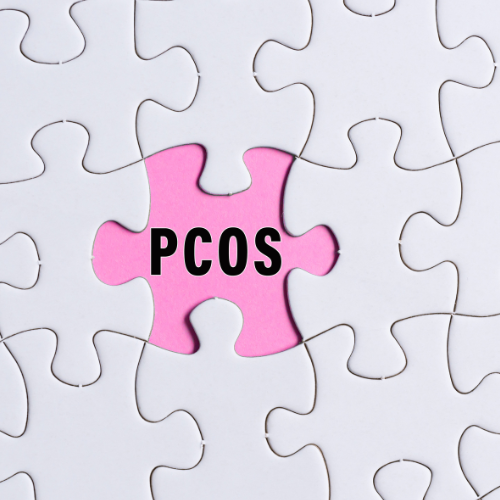
PCOS is a chronic condition that affects many women and can be a silent battle because its symptoms are not always visible.
Managing PCOS can be a significant burden, especially on top of usual daily stressors. It can be isolating and frustrating when your hormone levels are not under control, but you appear to be in good health.
OnPoint Nutrition has helped more than 20,000 women take back their bodies with our treasure trove of information and a science based approach to PCOS nutrition.
Many clients come to us with their unique health challenges, including women with PCOS. OnPoint's approach to managing chronic disease like PCOS is the expertise and support you need to feel better and manage your symptoms effectively.
Read on to learn more about the most common questions women come to us asking as they get ready to dive into a new, healthier lifestyle. Then, check out how we can help you manage your PCOS and improve your quality of life.
10 Frequently Asked Questions About PCOS
As a team of nutrition experts, we know that PCOS can be a confusing and overwhelming topic, but we are here to help you understand and manage this condition with confidence.
So, grab a snack and let's get started! Remember, knowledge is power, and with the right nutrition plan and lifestyle changes, you can take control of your health and thrive with PCOS.
Let's do this!
1. What is PCOS, and what are the symptoms?
Polycystic ovary syndrome (PCOS) is a hormonal disorder that affects women of reproductive age. It is a common condition that can cause a range of symptoms, including irregular menstrual cycles, excess hair growth, acne, weight gain, and infertility. Women with PCOS often have enlarged ovaries with small cysts that can interfere with regular ovulation and hormone production. PCOS can also contribute to a higher risk of developing health problems such as type 2 diabetes, high blood pressure, and heart disease.
2. What causes PCOS, and who is at risk of developing it?
The exact cause of PCOS is unknown, but it is thought to be related to a combination of genetic and environmental factors. Women with a family history of PCOS are more likely to develop the condition, as are those who are overweight or have insulin resistance.
Other risk factors may include exposure to certain toxins, inflammation, and imbalances in hormone levels.
3. How is PCOS diagnosed, and what tests are required?
PCOS can be diagnosed through medical history, physical examination, and laboratory tests.
Your doctor will likely ask about your menstrual cycle, symptoms, and medical history. They may perform a physical exam to look for signs of excess hair growth, acne, and other symptoms.
Blood tests may be ordered to check hormone levels, insulin resistance, and other markers of PCOS. An ultrasound may also be performed to visualize the ovaries and check for cysts.
4. What are the treatment options for PCOS, and are there any natural remedies?
Treatment for PCOS will depend on the severity of symptoms and individual needs. Conventional treatment options may include birth control pills to regulate menstrual cycles, medications to manage insulin resistance and diabetes, and fertility treatments for women trying to conceive.
Lifestyle changes such as exercise, a healthy diet, and weight loss can also help manage PCOS symptoms. Several natural remedies may be helpful for PCOS, including herbal supplements such as cinnamon and saw palmetto and dietary changes such as avoiding refined sugars and carbohydrates.
It is essential to discuss any potential natural remedies with your healthcare provider before trying them.
5. Can PCOS affect fertility, and what are the options for women who want to conceive?
PCOS can affect fertility and is one of the most common causes of infertility in women. The hormonal imbalances associated with PCOS can cause irregular periods, making it harder for women to conceive.
Additionally, the cysts that form on the ovaries can interfere with the release of eggs, further decreasing the chances of pregnancy.
Fortunately, many options are available for women with PCOS who want to conceive. One standard treatment is ovulation induction, which involves taking medication to stimulate the ovaries and encourage egg release.
In vitro fertilization (IVF) is another option, where eggs are retrieved from the ovaries and fertilized in a laboratory before being implanted in the uterus.
6. What are the long-term health risks associated with PCOS?
Aside from fertility concerns, PCOS can lead to several long-term health risks. Women with PCOS are at a higher risk for developing type 2 diabetes, high blood pressure, and heart disease. They may also experience irregular periods, acne, excessive hair growth, and weight gain.
7. How can lifestyle changes such as diet and exercise help manage PCOS symptoms?
Fortunately, lifestyle changes such as diet and exercise can help manage PCOS symptoms and decrease the risk of these long-term health complications. Eating a balanced diet low in refined sugars and high in fiber, lean protein, and healthy fats can help regulate blood sugar levels and promote weight loss. Regular exercise, even 30 minutes a day, can help manage symptoms and decrease the risk of health complications.
8. Is there a cure for PCOS, or is it a lifelong condition?
While there is no cure for PCOS, it is a manageable condition that can be treated with lifestyle changes and medication. With proper management, women with PCOS can lead healthy, fulfilling lives.
9. How often should women with PCOS be monitored for complications?
Women with PCOS should be monitored regularly for complications, including regular check-ups with their doctor, monitoring blood sugar and blood pressure levels, and getting normal cholesterol and lipid tests.
10. Are there any support groups or resources available for women with PCOS?
Many support groups, like the Facebook Support Group by OnPoint, and resources are available for women with PCOS, both online and in-person. These groups can provide a safe space to share experiences, offer emotional support, and access helpful resources and information about PCOS management. Some examples include PCOS Challenge and the PCOS Foundation.
How Can An Online Dietitian Help With PCOS?
Once you've received your PCOS diagnosis, following a healthy diet that nourishes your body and helps manage your symptoms is essential.
Finding the right balance between food and lifestyle can be difficult, especially if you lack training or knowledge about nutrition and PCOS.
To help you lead a happier and healthier life, a knowledgeable nutrition expert, such as a registered dietitian, will consider all of your specific needs and circumstances related to PCOS.
By learning more about nutrition and PCOS, you can take control of your health and adopt a lifestyle that will help you manage your symptoms and be the best version of yourself.
You don't have to let your PCOS define your life.
At OnPoint Nutrition, our approach to nutrition counseling is holistic and backed by research.
We believe that diet and lifestyle significantly impact health and wellness, and our team of experts is ready to help you start your journey to better health.
A dietitian will monitor your progress and adjust your plan as needed to ensure long-term success. With the support of a trained expert, you can live a healthier and more fulfilling life–even while managing PCOS.
Let's work together to achieve your desired health while managing PCOS.
Taking the Next Steps
PCOS may seem daunting, but it can be managed and even improved with determination and persistence.
Now that you know your condition, it's time to take action. Look closely at your current lifestyle and diet and see what changes can improve your symptoms and overall health.
Our team of experts has helped hundreds people with PCOS achieve wellness and maintain a healthy lifestyle. We stay current with the latest research and adjust our approach to ensure our clients receive the best care possible.
Consistency and sustainability are critical to long-term success, so our team of registered dietitians will monitor your progress and make adjustments as needed.
We'll keep a close eye on your symptoms and ensure that your experience is tailored to your needs, providing you with long-term relief and a higher quality of life.
Don't let PCOS control your life.
Contact our team of experts at OnPoint Nutrition and start on the path to a healthier, happier you!
Let's give you the tools you need to start making the changes in your life and lead to the better health you deserve while managing PCOS.
Topics

With a knack for turning complex nutrition facts into engaging, relatable content, she’s on a mission to make healthy living fun and accessible. Backed by a stellar team of Dietitians and Nutritionists, Abby breathes life into OnPoint’s mission, inspiring others to embrace the transformative power of good nutrition. Her infectious enthusiasm and innovative approach make her a driving force in the journey towards better health for all.



